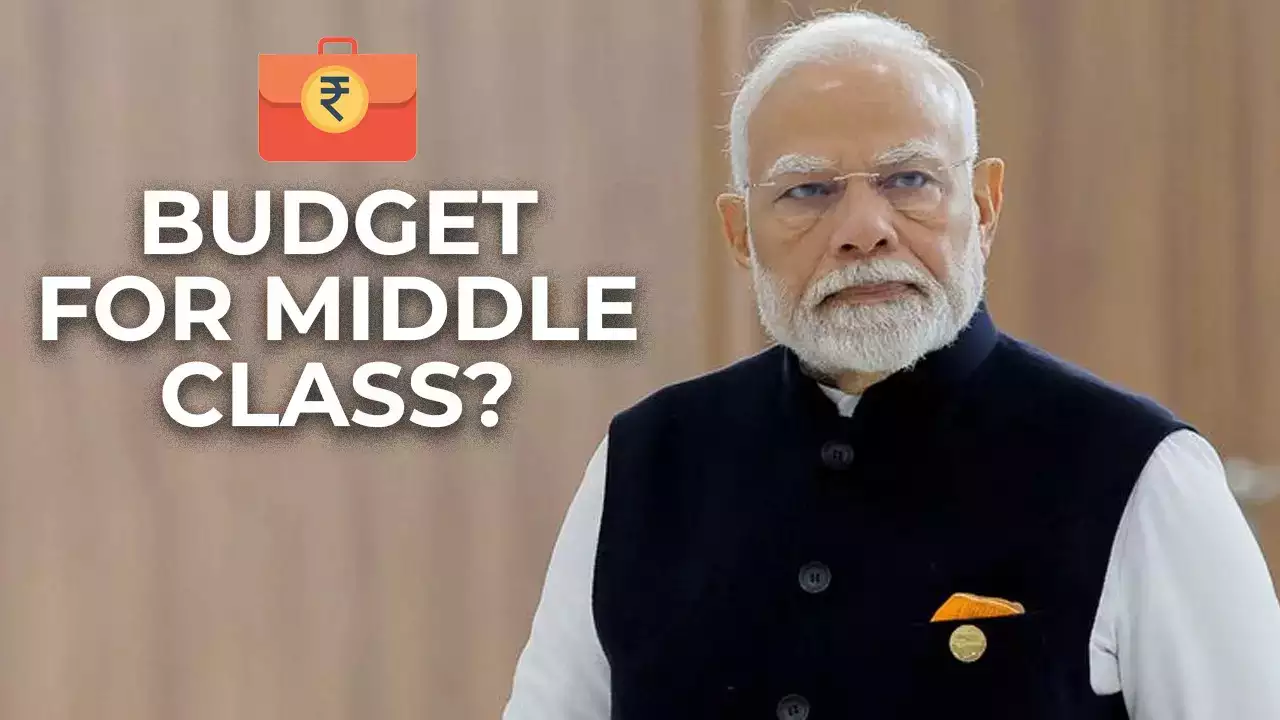Budget Strategies: Aiming for Middle-Class Support

The recent budget announcement by Finance Minister Nirmala Sitharaman has sparked significant discussion across various sectors of Indian society. With a focus on the middle class, the budget promises a substantial Rs 1 lakh crore in personal income tax relief. This move appears to be a strategic effort by Prime Minister Narendra Modi’s government to regain the support of the middle class, a group that has shown signs of discontent in recent months. As the nation prepares for upcoming elections, the implications of this budget could be far-reaching.
Understanding the Political Context
The timing of the budget is crucial. With elections looming in Delhi, where a large taxpayer base resides, the government is keenly aware of the sentiments among middle-class voters. Recent social media trends have highlighted a growing frustration among this demographic. Memes and discussions about “tax terrorism” have proliferated, reflecting a broader dissatisfaction with the government’s economic policies. Many middle-class individuals, once enthusiastic supporters of Modi, now feel overlooked amid rising inflation and stagnant wage growth.
The government’s decision to offer tax relief seems to be a direct response to this discontent. As consumption growth slows and major companies report declining sales, the need for a proactive approach has become evident. The BJP’s recent electoral losses have further underscored the importance of addressing middle-class concerns. Modi’s pre-budget hints and the subsequent tax giveaways signal a recognition of the need for change. The government aims to reassure voters that their financial well-being is a priority.
Bihar: A Key Focus in the Budget
Bihar, one of India’s poorest states, has emerged as a focal point in the budget. With elections approaching, the BJP is keen to maintain its alliance with the Janata Dal (United) and secure a victory in this politically significant region. The budget includes various initiatives aimed at improving infrastructure and supporting local agriculture, such as airport expansions and assistance for makhana growers. These measures are designed to send a clear message to Bihar’s voters: the central government is committed to their development.
Winning Bihar is not just about political prestige; it is essential for the BJP to sustain momentum from recent victories in Haryana and Maharashtra. A defeat in Bihar could embolden the opposition, particularly the RJD and Congress, and threaten the fragile anti-BJP coalition at the national level. Therefore, the budget’s focus on Bihar is a strategic move to solidify the BJP’s position in a state that plays a crucial role in Indian politics.
Addressing Emerging Economic Challenges
The budget also introduces measures aimed at addressing the needs of gig workers and small vendors. With the gig economy expanding, the government has proposed a medical insurance scheme for these workers, who often lack job security and benefits. This initiative reflects an understanding of the changing nature of work in India and aims to provide a safety net for those in precarious employment situations.
Additionally, the Dhan-Dhanya Krishi Yojana targets districts with poor agricultural yields, potentially generating goodwill for the BJP if implemented effectively. The budget also includes provisions for women entrepreneurs from SC/ST backgrounds, recognizing their significant role in the economy. These initiatives are part of a broader strategy to connect with diverse voter groups and address their specific needs.
Observer Voice is the one stop site for National, International news, Sports, Editor’s Choice, Art/culture contents, Quotes and much more. We also cover historical contents. Historical contents includes World History, Indian History, and what happened today. The website also covers Entertainment across the India and World.

